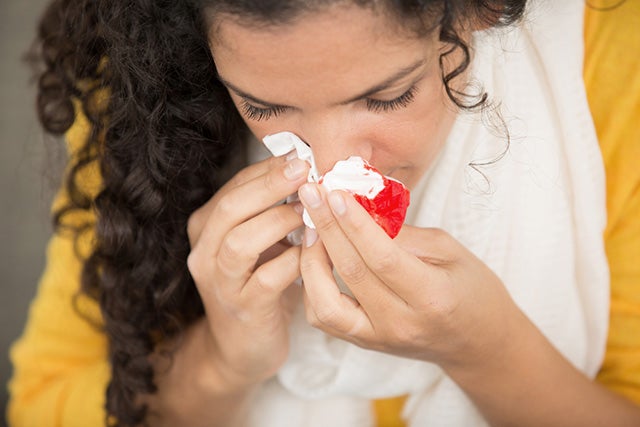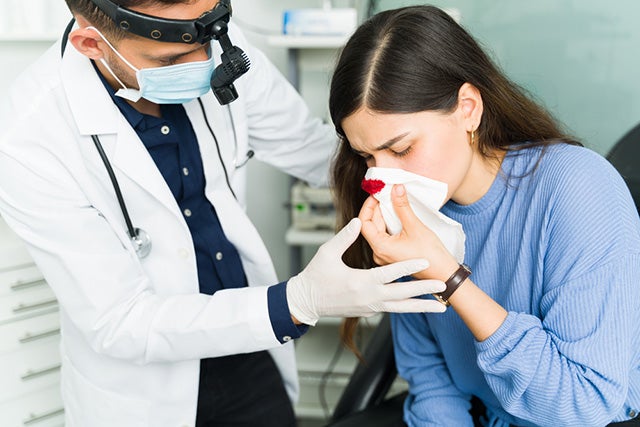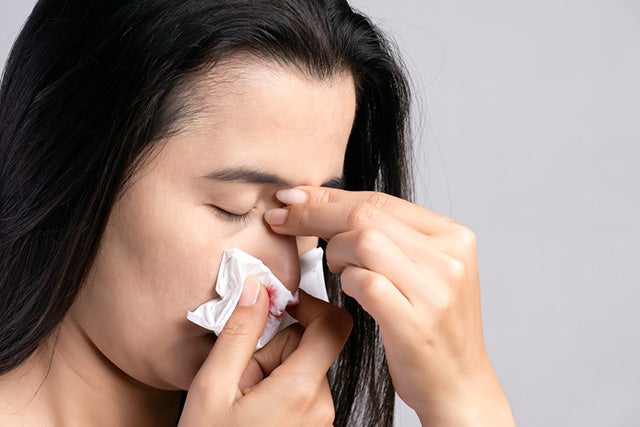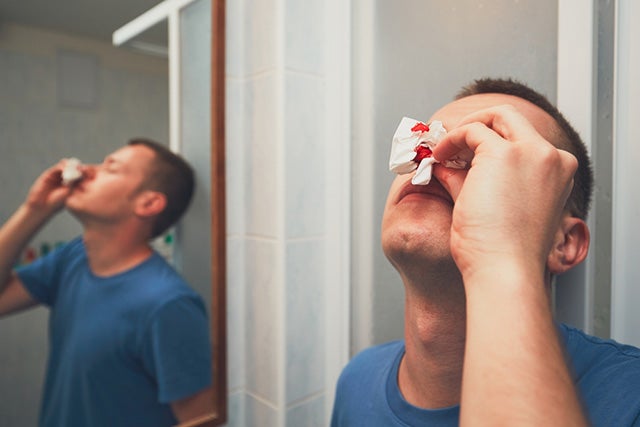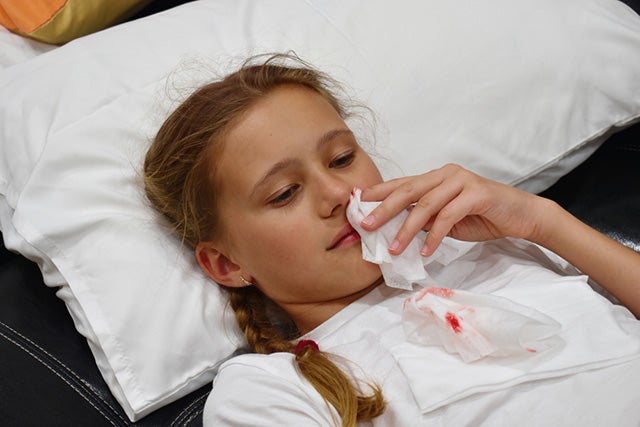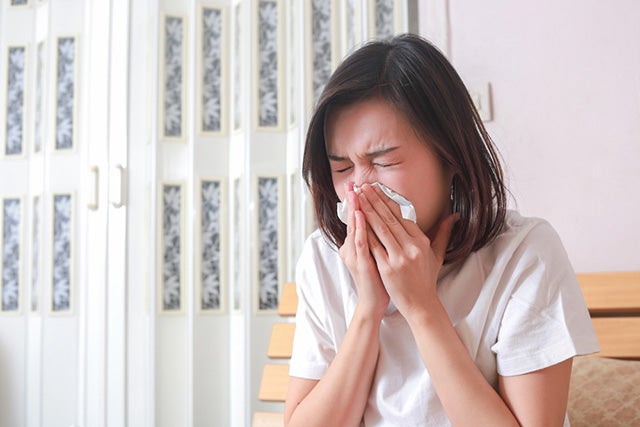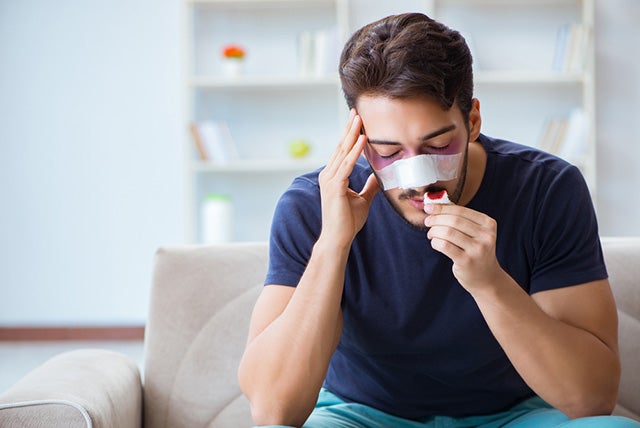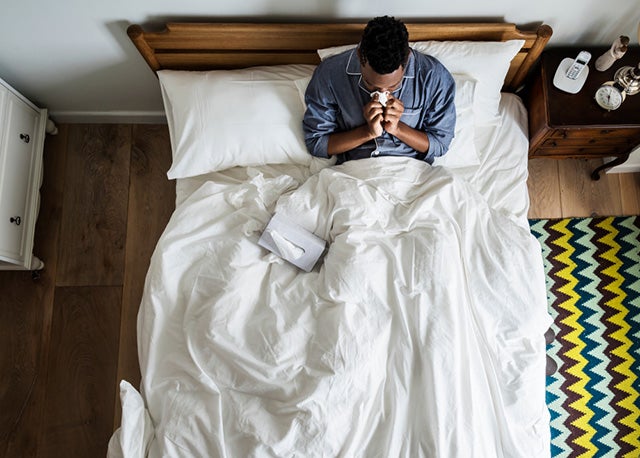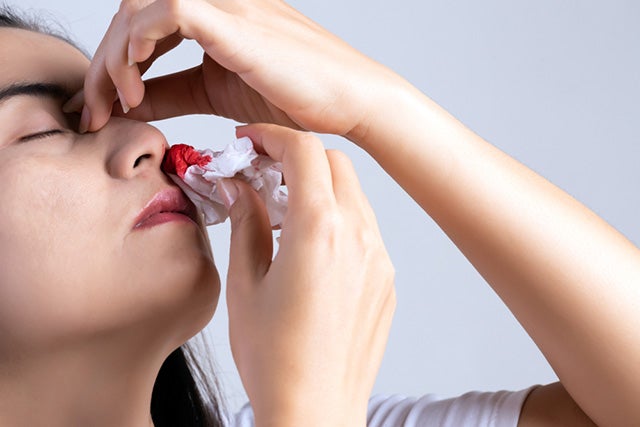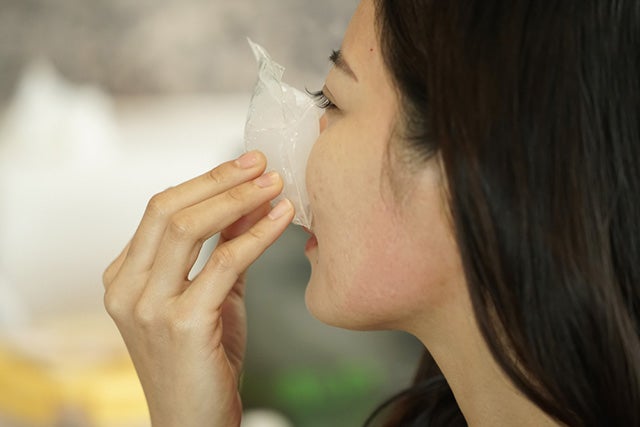An uncomfortable experience some people go through is a nosebleed. Perhaps it’s a one-off chance, or it happens routinely for you, but no type of nosebleed is ever pleasant.
Nosebleeds are not a sign of something good and can happen when you’re either awake or asleep. We’ll be discussing what nosebleeds are in-depth, what causes them at night, and how to prevent them from happening again.
What are Nosebleeds?
Your nose is relatively close to the tissue lining where blood vessels are. Your nose is a very easy target for bleeding since it’s in the center of your face, where there is a high amount of traffic for blood vessels and is very close to the surface tissue lining.
When are Nosebleeds Considered Serious?
Most of the time, nosebleeds are not serious. They can happen to many people and can also be handled quite easily at home.
However, there are certain cases where you should take a nosebleed more seriously. For instance, if nosebleeds are a frequent experience for you, then perhaps it’s best to consult a doctor to see if it’s not a symptom of a more severe underlying medical condition.
Another situation would be if the bleeding is very heavy as this shows that the bleeding has started from the very back of your nose. In this case, the blood vessels are larger in size, and therefore more will bleed out. If the bleeding continues for over 10 to 20 minutes, it’s time to see a doctor.
Types of Nosebleeds
There are two types of nosebleeds you should know about. The first is called anterior nosebleeds and is not serious. It occurs at the front of the nose and involves smaller blood vessels. This can happen to anyone since the front lining of the nose is relatively delicate and can rip easily.
The second type of nosebleed is called a posterior nosebleed. This is where the alarm should be raised. This type of nosebleed happens deep within the nose and involves larger blood vessels spilling out. It can even run down the throat for longer periods of time since the blood flow will be heavy. Posterior nosebleeds require medical attention and are more common in adults than they are children.
Who Can Get Nosebleeds?
Nosebleeds are not specific to certain people; anyone can get them. However, certain groups of people are more likely to have them than others.
Children under the age of 10 are more likely to experience nosebleeds. They have more sensitive tissue in their nose, and colds, allergies, and dry air will take a heavier toll on them, potentially resulting in a nosebleed. They also have a habit of sticking fingers and other items into their nose, which could cut open the skin.
Pregnant women are sometimes more susceptible to nosebleeds since the blood vessels around the nose expand when pregnant, and the blood vessels near the tissue of the nose are pressed against it.
Then some people take blood thinners and have clotting disorders. This demographic is typically aged between 45 years to 65 years. They are more prone to frequent and severe nosebleeds and should always consult their doctor if this is the case.
What are the Causes of Nosebleeds?
The most common reason behind a nosebleed could be dry air. When the air is dry, the sensitive tissue inside of your nose becomes hard and crusty, making it easier to break which creates a nosebleed. Then there are other causes of nosebleeds you need to know of.
- Severe colds with nose-blowing, sneezing, and coughing can result in nosebleeds.
- Allergies are also a reason for nose bleeds, especially if the allergic reaction involves inflammation of the nasal lining.
- An injury to the face, picking your nose, and inserting objects into your nose, such as nasal sprays, can result in nose bleeds.
- Blood thinners and chemical irritants in an environment, such as cleaning supplies, chemical fumes, and strong odors, can result in your nose bleeding.
- The inhalation of cocaine and other drugs through your nose is common for nosebleeds.
- Higher altitudes result in thinner air and, therefore, a drier environment.
- A deviated septum is an abnormality where the shape of the wall separating either side of your nose is uneven. This can create common nosebleeds.
- Bleeding or clotting disorders such as Von Willebrand disease, leukemia, and hemophilia.
- High levels of blood pressure.
- After receiving facial or nasal surgery, you’re likely to get nose bleeds.
- Pregnancy, as discussed before, can also lead to nosebleeds more often.
Other diseases include nosebleeds as a symptom. They are only a concern if your nosebleeds are heavy and prolonged. That is when you should consult a doctor, and they can properly distinguish which disease or disorder you may be facing.
What Causes Nosebleeds While Sleeping at Night?
Some people wake up during the night because of a nosebleed or perhaps even sleep through it. Nosebleeds happen when you’re sleeping for pretty much the same reasons as when you’re awake. When your nasal membrane or delicate tissue dries up, it cracks easier and leaves you more vulnerable to a nosebleed.
Sometimes, sleeping on your side applies pressure to your nasal cavity, which may enthuse a nosebleed during the night.
Once again, the severity of the nosebleed may vary. You may be experiencing an anterior nosebleed which can be handled at home, or you may encounter a posterior nosebleed. If so, definitely talk to your doctor.
How to Stop Nosebleeds
1. Relax. Let your muscles loosen up, and do not panic.
2. Sit up straight and lean your head and body forward ever so slightly. You don’t want to lean back, lie down, or bend over, placing your head on your knees. This can buildup the blood and allow it to sink into your throat, causing nausea.
3. Make sure to breathe through your mouth to avoid further irritation to your nose.
4. Keep a tissue or a damp cloth near your nose to catch as much blood as possible.
5. Using your thumb and finger, gently pinch the bridge of your nose. Make sure you’re not squeezing the actual bone since this will not help stop the bleeding. Make sure to keep pinching your nose for at least five minutes. If it proceeds to bleed, then continue pinching it for another ten minutes. If it does not stop even then, consult a doctor immediately.
6. You can even place an ice pack over your nose to slow the bleeding.
7. Once the bleeding has stopped, make sure not to bend over, lift anything heavy, or strain yourself for the next few days. Be sure not to blow or rub your nose either for several days.
Final Words
Nosebleeds are not typically a concern when you’re sleeping, though they can be quite alarming to wake up to. So long as you remember to handle your nosebleeds immediately and properly, they should not be a problem.
If you have learned something new today, be sure to share this article with others who might benefit from knowing about nosebleeds. Leave a comment below as well for fellow readers if you’ve had any experiences with nosebleeds and have advice to share. And be sure to check out our other helpful tips like this guide sitting up in bed.
Photo credit: Prostock-studio/Shutterstock; Daxiao Productions/Shutterstock;
Gorodenkoff/Shutterstock; fizkes/Shutterstock;
Roman Samborskyi/Shutterstock; F8 studio/Shutterstock;
Leszek Glasner/Shutterstock; Tero Vesalainen/Shutterstock;
tommaso79/Shutterstock; Zhuravlev Andrey/Shutterstock;
Rawpixel.com/Shutterstock; Viacheslav Nikolaenkosiam.pukkato
Everett Collection/Shutterstock; siam.pukkato/Shutterstock
